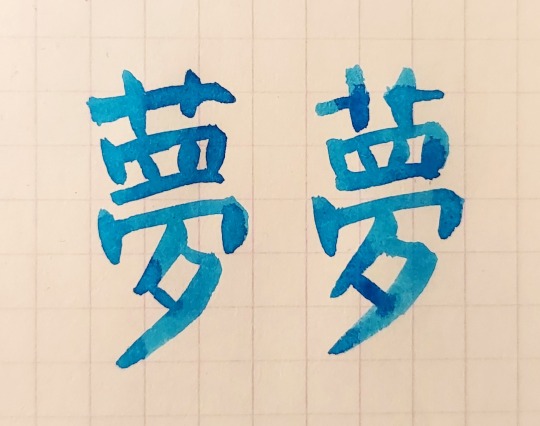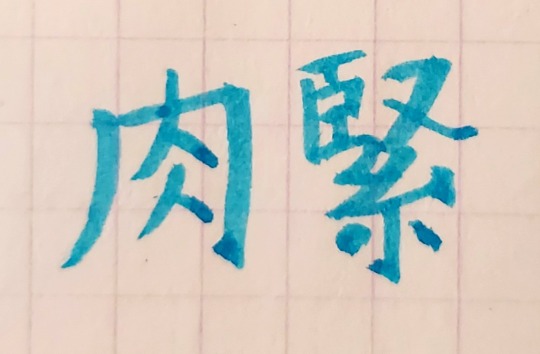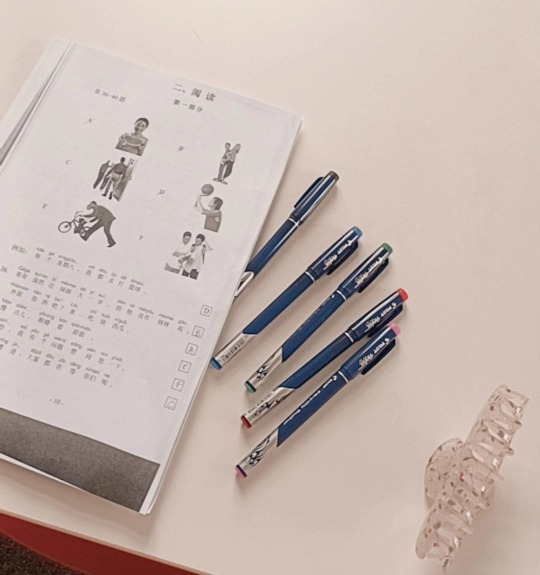#learning chinese
Text
75 essential single-character verbs (单字动词)

When I started consuming more native Chinese content, I quickly discovered an area in which my knowledge was lacking: single-character verbs. In my experience, it’s very easy to focus on learning words consisting of two or more characters and overlook single-character words.
Driven by curiosity, I went through my Anki deck (and also wracked my brain) to generate a list of characters/words that I have learned over the past couple years (roughly). Then I selected 75 verbs that are fairly common and important to know. They skew towards intermediate and advanced vocabulary.
Definitions are from MDBG. For characters with additional meanings that I am not yet familiar with, I have bolded the meanings I want to share.
(1) 抢 qiǎng - to fight over / to rush / to scramble / to grab / to rob / to snatch
(2) 救 jiù - to save / to assist / to rescue
(3) 扶 fú - to support with the hand / to help sb up / to support oneself by holding onto something / to help
(4) 催 cuī - to urge / to press / to prompt / to rush sb / to hasten sth / to expedite
(5) 夹 jiā - to press from either side / to place in between / to sandwich / to carry sth under armpit / wedged between / between / to intersperse / to mix / to mingle / clip / folder / Taiwan pr. [jia2]
(6) 咬 yǎo - to bite / to nip
(7) 砸 zá - to smash / to pound / to fail / to muck up / to bungle
(8) 毁 huǐ - to destroy / to ruin / to defame / to slander
(9) 嚷 rǎng - to shout / to bellow / to make a big deal of sth / to make a fuss about sth
(10) 塞 sāi - to stop up / to squeeze in / to stuff / cork / stopper
(11) 贪 tān - to have a voracious desire for / to covet / greedy / corrupt
(12) 拆 chāi - to tear open / to tear down / to tear apart / to open
(13) 掏 tāo - to fish out (from pocket) / to scoop
(14) 跪 guì - to kneel
(15) 摘 zhāi - to take / to borrow / to pick (flowers, fruit etc) / to pluck / to select / to remove / to take off (glasses, hat etc)
(16) 拎 līn - to lift up / to carry in one's hand / Taiwan pr. [ling1]
(17) 扛 káng - to carry on one's shoulder / (fig.) to take on (a burden, duty etc)
(18) 拽 zhuài - to pull / to tug at (sth)
(19) 愣 lèng - to look distracted / to stare blankly / distracted / blank / (coll.) unexpectedly / rash / rashly
(20) 搂 lǒu - to hug / to embrace / to hold in one's arms
(21) 垮 kuǎ - to collapse (lit. or fig.)
(22) 撑 chēng - to support / to prop up / to push or move with a pole / to maintain / to open or unfurl / to fill to bursting point / brace / stay / support
(23) 甩 shuǎi - to throw / to fling / to swing / to leave behind / to throw off / to dump (sb)
(24) 围 wéi - to encircle / to surround / all around / to wear by wrapping around (scarf, shawl)
(25) 愁 chóu - to worry about
(26) 插 chā - to insert / stick in / pierce / to take part in / to interfere / to interpose
(27) 漏 lòu - to leak / to divulge / to leave out by mistake / waterclock or hourglass (old)
(28) 披 pī - to drape over one's shoulders / to open / to unroll / to split open / to spread out
(29) 歇 xiē - to rest / to take a break / to stop / to halt / (dialect) to sleep / a moment / a short while
(30) 抄 chāo - to make a copy / to plagiarize / to search and seize / to raid / to grab / to go off with / to take a shortcut / to make a turning move / to fold one's arms
(31) 哼 hēng - to groan / to snort / to hum / to croon / humph!
(32) 哄 hǒng - to deceive / to coax / to amuse (a child)
(33) 啃 kěn - to gnaw / to nibble / to bite
(34) 眯 mī - to narrow one's eyes / to squint / (dialect) to take a nap
(35) 趴 pā - to lie on one's stomach / to lean forward, resting one's upper body (on a desktop etc) / (Tw) percent
(36) 揍 zòu - to hit / to beat (sb) / (coll.) to smash (sth)
(37) 蹭 cèng - to rub against / to walk slowly / (coll.) to freeload
(38) 凑 còu - to gather together, pool or collect / to happen by chance / to move close to / to exploit an opportunity
(39) 敲 qiāo - to hit / to strike / to tap / to rap / to knock / to rip sb off / to overcharge
(40) 滑 huá - to slip / to slide / slippery / smooth / sly / slippery / not to be trusted
(41) 碎 suì - to break down / to break into pieces / fragmentary
(42) 盯 dīng - to watch attentively / to fix one's attention on / to stare at / to gaze at
(43) 塌 tā - to collapse / to droop / to settle down
(44) 背 bēi - to be burdened / to carry on the back or shoulder
背 bèi - the back of a body or object / to turn one's back / to hide something from / to learn by heart / to recite from memory / unlucky (slang) / hard of hearing
(45) 数 shǔ - to count / to count as / to regard as / to enumerate (sb's shortcomings)
(46) 按 àn - to press / to push / to leave aside or shelve / to control / to restrain / to keep one's hand on / to check or refer to / according to / in the light of / (of an editor or author) to make a comment
(47) 压 yā - to press / to push down / to keep under (control) / pressure
(48) 亲 qīn - parent / one's own (flesh and blood) / relative / related / marriage / bride / close / intimate / in person / first-hand / in favor of / pro- / to kiss / (Internet slang) dear
(49) 补 bǔ - to repair / to patch / to mend / to make up for / to fill (a vacancy) / to supplement
(50) 舔 tiǎn - to lick / to lap
(51) 拼 pīn - to piece together / to join together / to stake all / adventurous / at the risk of one's life / to spell
(52) 埋 mái - to bury
(53) 抖 dǒu - to tremble / to shake out / to reveal / to make it in the world
(54) 涂 tú - to apply (paint etc) / to smear / to daub / to blot out / to scribble / to scrawl / (literary) mud / street
(55) 抹 mǒ - to smear / to wipe / to erase / classifier for wisps of cloud, light-beams etc
(56) 吞 tūn - to swallow / to take
(57) 拦 lán - to block sb's path / to obstruct / to flag down (a taxi)
(58) 露 lòu - to show / to reveal / to betray / to expose
露 lù - dew / syrup / nectar / outdoors (not under cover) / to show / to reveal / to betray / to expose
(59) 滚 gǔn - to boil / to roll / to take a hike / Get lost!
(60) 扣 kòu - to fasten / to button / button / buckle / knot / to arrest / to confiscate / to deduct (money) / discount / to knock / to smash, spike or dunk (a ball) / to cover (with a bowl etc) / (fig.) to tag a label on sb / (Tw) (loanword) code
(61) 夸 kuā - to boast / to exaggerate / to praise
(62) 挥 huī - to wave / to brandish / to command / to conduct / to scatter / to disperse
(63) 求 qiú - to seek / to look for / to request / to demand / to beseech
(64) 吸 xī - to breathe / to suck in / to absorb / to inhale
(65) 响 xiǎng - echo / sound / noise / to make a sound / to sound / to ring / loud / classifier for noises
(66) 擦 cā - to wipe / to erase / rubbing (brush stroke in painting) / to clean / to polish
(67) 踩 cǎi - to step on / to tread / to stamp / to press a pedal / to pedal (a bike) / (online) to downvote
(68) 撕 sī - to tear
(69) 扫 sǎo - to sweep
(70) 锁 suǒ - to lock / to lock up / a lock (CL:把)
(71) 扎 zhā - to prick / to run or stick (a needle etc) into / mug or jug used for serving beer (loanword from "jar")
(72) 撞 zhuàng - to knock against / to bump into / to run into / to meet by accident
(73) 追 zhuī - to chase / to pursue / to look into / to investigate / to reminisce / to recall / to court (one's beloved) / to binge-watch (a TV drama) / retroactively / posthumously
(74) 抽 chōu - to draw out / to pull out from in between / to remove part of the whole / (of certain plants) to sprout or bud / to whip or thrash
(75) 删 shān - to delete
#vocab list#chinese#mandarin#mandarin chinese#chinese language#studyblr#langblr#language study#learning languages#language learning#chinese studyblr#chinese langblr#mandarin studyblr#mandarin langblr#study chinese#study mandarin#learn chinese#learn mandarin#studying chinese#learning chinese#studying mandarin#learning mandarin#chinese vocab#mandarin vocab#foreign languages#language#languages#language blog#languageblr#language stuff
760 notes
·
View notes
Text
🦢 that girl diaries // brought to you by a thirst for knowledge ☕


today i focus on my language learning hobby! ☺️
🇯🇵 日本語
✍️ counting words writing practice
🎧 common Japanese phrases (56/100)
📝 negative verbs lessons (3x)
🇰🇷 한국어
🎧 conversational/casual speech (also the reason i haven't been skipping meals lately 🥺)
📝 반말 (casual speech) vocabulary lessons (2x) + unit exam
🎧 intermediate stories 1, 2
🇨🇳 中文
🎧 但我飞奔向你 (comprehensible input)
✍️ HSK2 writing practice (first page)
📝 HSK3 vocabulary lessons (2x) + unit exam
🤘 ASL
👀 I FOUND COMPREHENSIBLE INPUT 1, 2
☝️ signing places (wagging your index finger pointed up is the sign for "where")
⏪ review all the previous lessons thus far because i forgot pretty much everything 🥲
💌: i swear i can feel my neurons making new connections... or maybe that's a headache 😂
#studyblr#langblr#light academia#that girl#it girl#dream girl#study motivation#study inspiration#study aesthetic#studyspo#japanese langblr#korean langblr#chinese langblr#sign language#100 days of productivity#100 days of studying#100 days of self discipline#astudentslifebuoy#heydilli#zesty's life#student life#learning chinese#learning languages#learning japanese#learning korean#korean studyblr#japanese studyblr#chinese studyblr#korean aesthetic#self improvement
66 notes
·
View notes
Text

73 notes
·
View notes
Text

GUYS THIS HAS BEEN THE BEST WEEK OF MY LIFE I SWEAR. I THOUGHT THEY WOULDNT LET ME KNOW FOR A WHIIILE OMGOMG IM GOING TO TAIWAN
#studyblr#study blog#langblr#langblog#language learning#languageblr#chinese langblr#mandarin langblr#study abroad#taiwan#chinese language#mandarin chinese#mandarin studyblr#studyblr community#chinese studyblr#learning chinese#learn chinese#mandarin study#learn mandarin#studyabroad#exchange student#student life#uniblr#university#college
97 notes
·
View notes
Text
beautiful (and I understood this am so happy)
111 notes
·
View notes
Text
in like svsss fanfictions when characters refer to themselves as 'this one' what exactly are they saying? Like the hanzi, the pinyin, etc.
#chinese language#learning chinese#learning languages#languages#learning mandarin#foreign languages#Chinese#mandarin#mandarin langblr#hanzi#pinyin#help#svsss#svsss fandom#svsss fanfiction#moshang#luo binghe#shen qingqiu#shen jiu#scum villian self saving system#scum villain
86 notes
·
View notes
Text
Speak DECENT CHINESE in 4 months - 8 easy tips
______
1. Have someone to guide you to get good pronunciation habits. It is almost impossible to re-learn bad habits later so make sure you get your pronunciation right from the beginning. I mean the pronunciation of the sounds, not the tones. Tones take more time to get used to and you can't rush it - but try the best you can. Some tutors don't bother too much about the pronunciation so make sure you find someone who is strict about that, you will be grateful later. Also get confident in pinyin, you will need it.
2. Understand the composition of the sentences. The word order is super easy and it stays the same all the time (the question and informative sentences have the same word order). I have a formula for the word order but I won't reveal it here, it is one of the secrets I keep for my students and people who use my materials.
3. Understand that there are no tenses in the sense we think about them in English and other languages. Learn to express future, potential future, finished action, change of state, experience in the past and circumstances of the event. See the difference between action verbs and verbs of state.
4. Learn to use modal verbs and conjuctions.
5. Build usable vocabulary based on the fact that everything in Chinese is interconnected.
6. Understand 就, 才,的 and 得
7. Don't learn grammar rules and words separately. Learn functional practical sentences that will serve you as examples of the grammar structures (then you just need to change the words in these sentences).
8. Develop your listening skills - that is very important. For that there are Youtube channels and podcasts on Spotify (and in my materials the audio part also plays an important role). You can listen to Chinese radio stations just to get the feeling of the language.
______
After 3-4 months you should feel pretty confident in normal conversations if you study regularly under competent guidance.
______
R-evolutionary learning materials and resources: https://linktr.ee/chineseffect
MAGIC PLAYBOOK for beginners
#learn chinese#learn mandarin#chinese langblr#mandarin langblr#edublr#mandarin#chinese#mandarin edublr#langblr#chinese vocabulary#mandarin chinese#chinese edublr#learning mandarin#learning chinese#study chinese#mandarin vocabulary#study mandarin#汉语#chinese studyblr#beginners chinese#chinese for beginners#learning tips#chinese tips#mandarin tips
243 notes
·
View notes
Text
Vocabulary List #58
夕 [xī] - evening
名 [míng] - name
千 [qiān] - a thousand
舌 [shé] - tongue
不 [bù] - no; not
的 [de] - belonging to
大 [dà] - big
又 [yòu] - again
粥 [zhōu] - congee
茶 [chá] - tea
橙子 [chéngzi] - orange (the fruit)
子 [zi] - child; noun suffix
了 [le] - completed action marker
错了 [cuòle] - wrong
对了 [duìle] - correct; oh, by the way...
土 [tŭ] - earth; dust
#langblr#language#languages#chinese#chinese langblr#learn chinese#learning chinese#vocabulary list#vocab list#chinese vocab list#memrise
42 notes
·
View notes
Text
There was a post that crossed my dash about the character for dream meng/mung6 (don't know which drama) but some dude got in trouble for using 14 strokes instead of the 13 stroke version of the character. Which got me thinking... I'm pretty sure I learned the 14 stroke version where it looks like grasshopper antennae on top instead of a bar.
So I decided to look it up while using both version for today's learning/practice. Using both a watercolor brush and a fountain pen with mini-bent nib today.
Parts:
grass hair
4
a hat
the 'going down' part of sunset (夕陽)



Apparently it's once again down to regional differences. The tufts of hair was used in HK and Taiwan (probably old gen only now) and is the older traditional version. The one where the hair is a whole piece is used in like... China and Japan.
So this makes me wonder why that character in that drama (idk what drama) was penalized for writing the word using a character style that would have been period appropriate in a costume drama? The connected crown is newer. :O
And now with Simplied, they grew a forest instead of hair, threw away the hat and let the sun set. So imagery-wise I'm getting.... dream = sun setting as a forest grows darker and darker. I kinda like that.

Bonus juk6gan2 肉緊 which I have been told is indeed outdated slang, so I'M BRINGING IT BACK. Cantonese for 'meat tight' = THE TENSION YOU FEEL WHEN YOU'RE DEALING WITH CUTE AGGRESSION.


However, if you reverse the order to 緊 肉 then it means "tight muscles". Like you haven't stretched enough and things are stiff. I have no idea if this is how it's used in mandarin. Feel free to let me know. not used this way in mandarin
Question: What's the use difference when both 夕 (alone) and 夕陽 ? Since both mean sunset...? Answered!
20 notes
·
View notes
Text
My latest obsession: The XX子 pattern
So what is XX子? Well I made that term up because I didn't know what else to use. As for what it means, Chinese has many nouns that end in 子, so they are of the form X子. Sometimes the character X can also be a verb. So in some cases, you can actually say you Xed an X子, and it will make perfect sense!
种种子 zhòng zhǒngzi
种 zhòng - to plant / to grow / to cultivate
种子 zhǒngzi - seed
扇扇子 shān shànzi
扇 shān - to fan
扇子 shànzi - fan
盖(上)盖子 gài gàizi
盖 gài - to cover
盖子 gàizi - cover / lid
扣(上)扣子 kòu kòuzi
扣 kòu - to fasten / to button
扣子 kòuzi - button
包包子 bāo bāozi
包 bāo - to wrap
包子 bāozi - bun / bao
钉钉子 dìng dīngzi
钉 dìng - to nail / to pin
钉子 dīngzi - nail
辫辫子 biàn biànzi
辫 biàn - to plait / to braid
辫子 biànzi - plait / braid / pigtail
As you can see, sometimes the tone of character X is different...but I feel like that could be a whole other post. I'm "collecting" more of these, so if you can think of any, let me know! I looked for a list online but couldn't find anything.
#nerdy language stuff#chinese#mandarin#mandarin chinese#chinese language#studyblr#langblr#language study#learning languages#language learning#chinese studyblr#chinese langblr#mandarin studyblr#mandarin langblr#study chinese#study mandarin#learn chinese#learn mandarin#studying chinese#learning chinese#studying mandarin#learning mandarin#foreign languages#language#languages#language blog#languageblr#language stuff#chinese vocab#mandarin vocab
367 notes
·
View notes
Text
getting over my "intermediate slump" in 3 languages 🇰🇷🇨🇳🇯🇵



i've barely reached intermediate level in two of my target languages, yet i'm already slumping so hard 🙈 and the worst part is, because Japanese is so similar to Korean and Chinese, i'm getting bored when i'm barely even N5 yet 😅 so starting today, i want to take inspiration from this article to get over my slump and find that excitement and joy in learning again!
✍️ target language output practice yay
🇰🇷 most days i'm keeping my diary in Korean lately! i can even write bad(?) poetry in Korean (no, i will not elaborate 🙈)
🇯🇵 Kanji + Hiragana writing practice for the days of the week + keyboarding practice writing a short journal entry!
🎧 target language input binge let's gooo
🇰🇷 reminding myself why i can't watch Hello, Counselor 😡 i just get so mad at these entitled, rude, small-minded men (적어도 승관씨는 이해... 아이돌입니다 또는 아니야, 그는도 화나했어요 at least Seungkwan understands... idol or not, he's angry too 🥺)
🇰🇷 귀여운 귤은 인터뷰를 있어요 (cute tangerine does an interview), 난 봤어 그럼요 (i watched it of course)
🇯🇵 優しな母と優し家族 (kind mom and kind family) vlogs 1, 2
🇰🇷 Seventeen Artist-Made Season 2 (the upper-middle child line, lol)
🎯 target language drills
🇯🇵 3 lessons + unit exam
🇨🇳 4 lessons
💌: besides low-key neglecting to do more meaningful study in Chinese, i think i did pretty well! there's only so much time in one day after all. the important thing is i feel motivated to continue tomorrow ☺️
#studyblr#langblr#study aesthetic#korean studyblr#korean langblr#japanese studyblr#japanese langblr#chinese studyblr#chinese langblr#study motivation#study inspiration#100 days of productivity#100 days of studying#100 days of self discipline#zesty's life#astudentslifebuoy#heydilli#learning languages#learning japanese#learning chinese#learning korean#language lessons#language learning#language study#languages#light academia#chaotic academia#duolingo#studyspo#study space
37 notes
·
View notes
Text
Languageblr, studyblr, mandarinblr, please help!
So I've heard that when a third tone comes before another third tone you change the first into a rising tone - but what if you have three third tones in a row?
What if I were to say 我很好, is it 3 2 3? Or 2 3 3?
And what if I had four or more in a row, like 我也很好 - does that go 2 3 2 3?
I've googled, but I can't find anything other than rising before the first third, so any help would be appreciated 🙏
50 notes
·
View notes
Text
looking for mandarin show/movie recommendations plsss
i currently watch street dance of china and used to watch the chuang series but i dont know how to branch away from the competition/survival shows
#studyblr#study blog#langblr#langblog#language learning#languageblr#chinese langblr#mandarin langblr#learning mandarin#chinese studyblr#learning chinese#learn chinese#chinese language#mandarin chinese#mandarin studyblr#mandarin study#learn mandarin#mandarin
77 notes
·
View notes
Text
Chinese vocabulary I’ve learned recently
消费 = to consume, consumerism
听力 = hearing
收到 = to receive
顾客 = client
合适 = appropriate, suitable
服务 = to serve, service
上升 = to ascend, to rise
变成 = to become, to turn into
方便 = convenient
环境 = environment
凉快 = cool (for weather)
暖和 = warm
交通 = traffic, transportation
热闹 = lively
命运 = destiny, fate
必要 = necessary, elemental
楼 = building
地下室 = basement
笑话 = joke
秘密 = secret
预报 = forecast
74 notes
·
View notes
Text



Starting learning Chinese 🇨🇳
1. Learn pinyin and how to pronounce it
2. Start with basic hanzi (我,你,他,女,儿...)
3. Prioritise reading and listening but don't forget to pronounce what you read/listen! Repeating helps a lot!
4. Don't give up! It may look hard but, if you are motivated, you can do it!
#chinese#learn chinese#learning#learning chinese#chinese language#chinese lesson#chinese langblr#language#language lessons
72 notes
·
View notes
Text
Hey guys, look at this chinese poem I found!
Hanzi:
施氏食狮史
石室诗士施氏, 嗜狮, 誓食十狮。
氏时时适市视狮。
十时, 适十狮适市。
是时,适施氏适市。
氏视是十狮, 恃失势,使是十狮逝世。
氏拾是十狮尸, 适石室。
石室湿,氏使侍拭石室。
石室拭, 氏始试食是十狮。
食时, 始识是十狮, 实十石狮尸。
试释是事。
Pinyin :
Shīshì shíshī shǐ
shíshì shī shì shī shì, shì shī, shì shíshí shī.
Shì shí shíshìshì shì shī.
Shí shí, shì shí shī shì shì.
Shì shí, shì shī shì shì shì.
Shì shì shì shí shī, shì shī shì, shǐ shì shí shī shì shì.
Shì shíshì shí shī shī, shì shíshì.
Shíshì shī, shì shǐ shì shì shí shì.
Shí shì shì, shì shǐ shì shí shì shí shī.
Shí shí, shǐ shí shì shí shī, shí shí shí shī shī.
Shì shì shì shì.
English translation:
Shi's history of eating lions
Shi Shishi, a poet in the stone room, was fond of lions and swore to eat ten lions.
It is always appropriate to see the lion in the city.
At ten o'clock, the ten lions are suitable for the city.
It's time for Shishi's market.
Shi regarded the ten lions as ten lions, and lost his power, so that the ten lions died.
Shi Shi is ten lion corpses, suitable for stone chambers.
The stone room was wet, so the clergyman wiped the stone room.
The stone room was wiped, and Shi Shi first tried to eat ten lions.
When eating, the first consciousness is ten lions, which are actually ten stone lion corpses.
Explanation is a thing.
•••
I am not ok-
#chinese langblr#mandarin langblr#mandarinblr#langblr#language learning#languageblr#langblog#china#learning chinese#chinese#mandarin vocab#mandarin#chinese poem#chinese poetry#shi#study chinese#learning mandarin#chinese vocab#learn chinese#chinese study#learning languages#languages
217 notes
·
View notes